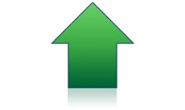Market Data

May 3, 2022
April Manufacturing Up Despite Rising Prices: PMI
Written by David Schollaert
US manufacturing activity saw a marked improvement in April, expanding at its quickest pace in seven months despite rising inflation, according to the latest data from S&P Global’s purchasing managers survey.
The seasonally adjusted S&P Global PMI posted a reading of 59.2 in April, up from 58.8 the month prior, but lower than the earlier released ‘flash’ estimate of 59.7. (Recall that a reading above 50.0 indicates growth). All told, the PMI Index growth accelerated for the third straight month and saw the sharpest rise since last September, the report said.
“After a slow start to the year, which saw production growth almost stall, the manufacturing sector is starting the second quarter on a much stronger footing,” S&P Global chief business economist Chris Williamson said. “Demand from consumers and businesses is proving encouragingly robust despite severe inflationary pressures, which intensified further during April.”
The overall upturn defied rising costs, with expansion in output and operating conditions across the manufacturing sector.
“Both input cost and selling price inflation surged higher, the latter accelerating to a near-record rate, as firms faced rising energy prices, ongoing supplier-driven price hikes amid strained supply chains, and rising wage costs,” Williamson said.
While firms were upbeat about the 12-month production outlook, concerns about inflation and geopolitical tensions pushed confidence lower in the near term.
“In short, while the survey data add to indications that the pace of economic growth will improve in the second quarter after a lackluster first quarter, the less welcome news is that elevated inflationary pressures show no signs of relenting,” Williamson added.
By David Schollaert, David@SteelMarketUpdate.com







